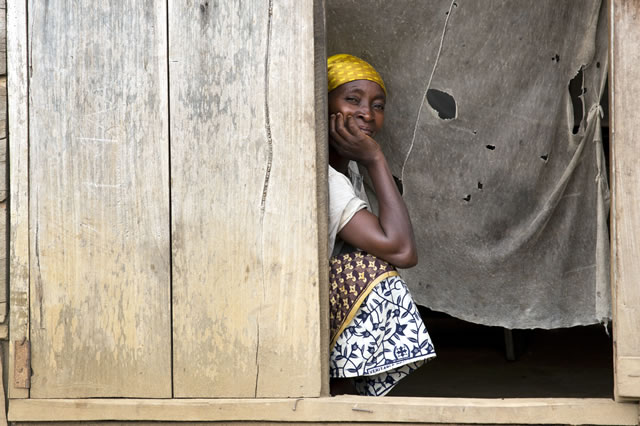"No society can develop - economically, politically or socially – when half of its population is marginalised." - Mary Robinson, October 2014
Given existing gender inequalities and development gaps, climate change ultimately places a greater burden on women. Men and women are affected by climate change in different ways, because the societal and cultural roles and responsibilities made on them by families and communities. For example, where women are the primary food producers and providers of water and cooking fuel for their families, while having greater responsibility for family and community welfare.
Understanding that climate change impacts on men and women differently, it is therefore necessary to ensure that we have gender sensitive climate policies that are informed by women and address the realities of women’s needs.
Women can and are leading on climate action but they need to be better represented in climate decision making at all levels.
In October 2014 WEDO released a comprehensive technical guide on gender and climate change in the negotiations titled United Nations Framework Convention on Climate Change Decisions and Conclusions: Existing Mandates and Entry Points for Gender Equality. It highlights a concerning lack of gender balance in boards and bodies of the UNFCCC. Thanks to Decision 23/CP18, we are now able to track the make-up of UNFCCC bodies and boards as well as national delegations. At COP20 / CMP 10 in Lima women account for 36% of party delegations which is a 7% increase on last year. While progress has been made in terms of women’s representation on delegations the same is not true for women’s representation on boards and bodies of the UNFCCC.
The Foundation’s activities this Gender Day are built around a number of activities including hosting a meeting of the Troika+ of Women Leaders on Gender and Climate Change. Mary Robinson will join Christiana Figueres, Executive Director United Nations Framework Convention on Climate Change (UNFCCC) and Lakshmi Puri, Deputy Executive Director, UN Women for a discussion on the role of women in addressing climate change at ‘Momentum for Change: Women for Results’ a UNFCCC event that will also showcase on-the-ground climate action led by women.
In all activities Mary Robinson will carry the messages of the women who participated in the Leaders Forum on Gender and Climate Change which brought together indigenous women, young women, women farmers and community leaders, women heads of state and government and former heads of state and government, women in business and academics from 54 nations. Women’s empowerment, greater participation in decision-making processes, increased accountability, courage in leadership and the need to integrate human rights into climate actions are all critical to the realisation of climate justice.
Related:
See all news articles related to COP20 in Lima
Read more about our work on Women’s Leadership on Gender and Climate Change
Mary Robinson Writes on Gender Day on The Elders.org
Leaders’ Forum on Women Leading the Way: Raising Ambition for Climate Action


